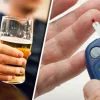How Much Alcohol Can I Drink If I Have Diabetes? Understanding the Impact and Managing Your Health
Introduction:
Living with diabetes requires careful management of various aspects of your lifestyle, including your diet, exercise, and overall health. One common question that arises is how alcohol consumption affects blood sugar levels and overall health for individuals with diabetes. In this article, we will explore the impact of alcohol on diabetes and provide guidelines for safe consumption. But before we dive into the details, let’s first understand the basics of diabetes.
Understanding Diabetes:
Diabetes is a chronic condition characterized by high blood sugar levels. It occurs when the body either does not produce enough insulin (Type 1 diabetes) or is unable to effectively use the insulin it produces (Type 2 diabetes). Insulin is a hormone that helps regulate blood sugar levels and allows cells to use glucose for energy. When diabetes is not properly managed, it can lead to various complications and negatively impact overall health.
Alcohol and Diabetes:
When it comes to alcohol consumption, there are several factors to consider for individuals with diabetes. Here’s what you need to know:
1. Impact on Blood Sugar Levels:
Alcohol can lower blood sugar levels in the short term, potentially leading to hypoglycemia (low blood sugar). However, it’s essential to note that excessive alcohol consumption can also cause hyperglycemia (high blood sugar) in the long run. This is because alcoholic beverages often contain carbohydrates and calories that can contribute to elevated blood sugar levels.
2. Interference with Medications:
Some diabetes medications, such as sulfonylureas and meglitinides, can interact with alcohol and lead to a drop in blood sugar levels. It’s crucial to consult your healthcare provider to understand how alcohol may affect your specific medications.
3. Increased Risk of Hypoglycemia:
Drinking alcohol can increase the risk of hypoglycemia, especially if you take insulin or certain diabetes medications. This is because alcohol can interfere with the liver’s ability to release stored glucose. It’s important to monitor your blood sugar levels closely if you choose to consume alcoholic beverages.
Safe Alcohol Consumption Guidelines:
Now that we understand the potential impact of alcohol on diabetes, let’s discuss some guidelines for safe alcohol consumption:
1. Moderation is Key:
It’s recommended to consume alcohol in moderation, which means limiting your intake to moderate amounts. For men, this translates to a maximum of two standard drinks per day, while women should limit themselves to one standard drink per day. One standard drink in India typically contains around 10 grams of alcohol.
2. Choose Wisely:
Opt for drinks that are lower in sugar and carbohydrates. Examples include dry wines, light beers, or spirits mixed with sugar-free mixers. Avoid sugary cocktails, sweet wines, and high-calorie beers.
3. Monitor Blood Sugar Levels:
Regularly check your blood sugar levels before, during, and after drinking alcohol. This will help you understand how your body responds and enable you to take necessary actions to avoid any adverse effects.
4. Eat Before Drinking:
Never consume alcohol on an empty stomach. Eat a balanced meal containing carbohydrates, protein, and healthy fats before drinking. This will help slow down alcohol absorption and minimize the impact on blood sugar levels.
5. Stay Hydrated:
Alcohol can dehydrate your body, so it’s essential to drink plenty of water alongside your alcoholic beverages. Staying well-hydrated can help prevent excessive thirst and regulate blood sugar levels.
Fitpaa and Your Diabetes Management Journey:
While understanding safe alcohol consumption is crucial for individuals with diabetes, it’s equally important to prioritize overall health and well-being. That’s where Fitpaa comes in.
Fitpaa is an AI-driven health and fitness app that aims to help individuals achieve their health and fitness goals, including better management of diabetes. With personalized plans tailored to your specific needs, Fitpaa offers a comprehensive approach to lifestyle and behavior modification. Through features like the Fitpaa Capsule, which combines medical therapy, nutrition, exercise, and cognitive behavior therapy, you can optimize your metabolism and achieve your desired health outcomes.
Fitpaa’s real-time guidance technology, habit-building strategies, and expert consultations provide the necessary support to stay on track with your health goals. Whether you’re looking to manage weight, improve overall fitness, or address specific health concerns related to diabetes, Fitpaa can be your trusted companion on your journey to better health.
Conclusion:
Managing diabetes requires careful consideration of various lifestyle factors, including alcohol consumption. By understanding the impact of alcohol on blood sugar levels and following safe consumption guidelines, you can enjoy occasional drinks while minimizing potential risks. However, it’s always recommended to consult with your healthcare provider before making any significant changes to your diet or lifestyle.
If you’re ready to take control of your health and fitness journey, Fitpaa is here to support you. Download the Fitpaa app today and embark on a personalized, goal-oriented approach to managing your diabetes and achieving overall well-being. Your health and happiness are within reach, and Fitpaa is with you every step of the way.









